Hey bookworms! Hope a bunch of you got the chance to dig into Robb Wolf’s “Wired to Eat: Turn Off Cravings, Rewire Your Appetite for Weight Loss, and Determine the Foods That Work for You” this month. Many of you likely recognized Robb Wolf, author of The Paleo Solution, as one of THE guys behind the Paleo movement. While I’m not 100% on board with eating full-on Paleo, I do really enjoy his podcast, and I love that he has a really open mind when it comes to how to work modern life in with a full-on “proper” Paleo diet. (Ahem, the man is not opposed to the occasional tequila or glass of wine.)
So, I knew from listening to him speak about this book that there would be a lot more to it than simply “eat like a caveman.” And man, I was NOT disappointed! In fact, I would say that between the writing and the content, it was one of the better nutrition books I’ve read in the last few years, and I have read A LOT of them.
A few highlights/favorite findings for those of us in the endurance athlete world (italics are direct quotes from the book):
He doesn’t want you to ask “is this Paleo?”
An overly simplistic view of the Paleo diet led to a mindless process of asking, “Is this food Paleo?” versus the more appropriate question, “Is this food a good option for me?” On the other hand, if the details on how the diet works start to look like Advanced Chemistry, a typical reader would rather roll around naked in broken glass.
Ugh, thank you!!!! I was so glad he led with this—he talks a lot throughout the book about the personalized approach to nutrition: asking if a food is good for you, versus fitting into a diet constraint. (I’ll add that this relies on you to be honest—I have been known to rationalize a Reese’s Easter egg peanut butter cup as a good option for me…). But giving readers this autonomy to decide what makes sense for them is awesome.
As an aside, as someone who writes a ton about nutrition, one of my major pet peeves is when we accept “paleo” treats as healthy. A lot of them are still crazy high in calories and just generally not super healthy (the same is true for ‘gluten-free’ versions of anything…). So asking readers to actually be smart and make rational decisions versus going for the Paleo label is commendable.
We aren’t what we eat
Guilty associations with food—cheat meals, for example—isn’t really helping anything. “Understanding how we are wired to eat will remove the morality and guilt often associated with attempting dietary changes,” he writes. And then explains how.
Perhaps the most injurious is the misguided notion of “cheating” on our eating. We don’t “cheat” on our food. We do not need a “healthy relationship” with our food. We simply need to understand that there are consequences to our food choices. The mind-set surrounding the “cheating” mentality is almost a guarantee of failure and puts the focus in the wrong place, when the real problem is most likely a lack of love and connection. Now is the opportunity to change our minds and our lives.
Food has so much emotional attachment for all of us, and I can definitely say that’s true of myself. My less than stellar food choices aren’t associated with stress or sadness, personally. If I do some serious thinking/digging, I realize that I grab for the milk chocolate and the junk food when I’m feeling relaxed… or rather, I associate being relaxed with eating junk food. If I eat a super healthy lunch, I’m still on the clock. If I sit down with a donut, I’m suddenly engrossed in a novel and just chilling out.
How am I shifting that? It’s a tough one, even for someone who knows a hefty amount about nutrition, but I’ve made a few changes since reading the book.
- “Don’t go into the dark alley if you don’t want a knife fight.” This is a Peter-ism that I’m butchering, but basically, don’t keep $hit in the house if you’re trying not to eat it. This is one of those DUH things, but for me, I’ve generally kept a couple of things on hand because while I snack, I don’t have an over-eating issue, per se. But for the sake of trying to break the habit of reaching for crappier food choices when I want to chill out, I stopped stashing milk chocolate in the cupboard for after dinner when the work day is done.
- Substitute. I’m a dessert person, and I know eating later in the day is bad on a lot of levels. (I just wrote an article I’ll link to later this week about intermittent fasting done right, and there’s a simple way to do it as an athlete…) Anyway, I know that my dessert levels tend to creep up, so I need to reset pretty regularly. I’ve never been great at the “just a square of dark chocolate” thing. And TBH, I sincerely doubt anyone is very good at that. But anyway, what I’ve done is just try to shift what dessert is: no chocolate substitutes like dark chocolate or anything like that because it’s just not as good as milk chocolate to me. (Sorry to everyone who loves dark chocolate.) Right now, I have a really good batch of chia seed and coconut milk pudding and I’ve been doing a tiny scoop of that (it’s hella high fat!) with a cup or so of blueberries. Super satiating, and reasonably healthy. I’m also just trying to, you know, stop eating after dinner altogether, rather than making going for the dessert an automatic.
- Chill with tea or coffee. Instead of waiting until the junk comes out to chill and read for a few minutes, I’m trying to start with the relaxing part of the equation, rather than only doing it when snacks are involved. Weirdly, this has helped the most. Case in point: normally, if I work for the morning, then walk to the coffee shop, I’ll usually end up getting a cookie with my coffee to eat while I read for a bit, then I’ll get back to work. For some reason, if I don’t get the cookie, I wouldn’t sit and read. Now, I’m trying to skip the cookie but still take the 10-15 min break to dig into a cheesy novel. Emotional need = met.
Sleep Enough
I just wrote a huge post about the importance of sleep for athletes, and Robb points out that it’s also the easiest way to start to fix our diets, our guts and our lives.
We work much more and sleep much less than we did even in the 1980s, about 2.5 hours less per day on average for most Americans. This change in not only sleep but also our constant exposure to artificial light (which affects every body system you care to consider) is perhaps the most profound change humanity has experienced.
He writes about sleep, exercise, stress and community as much as he writes about food, and I was so stoked to see that all in a book about diet, because I think SO many people pick up nutrition books, maybe change one or two things about the way that they eat or what they’re eating, but ignore all of the other lifestyle factors that influence our guts, metabolisms and brains. He points out that regulating our appetite is the simplest way to eat better, but it’s something I never see talked about in ‘diet’ books. Thinking of food like it exists in a vacuum just doesn’t make sense.
Be Prepared
Don’t “Euroshop” (buy tiny amounts of food that you run out of in a day), as this will again leave you with inadequate options and increase your likelihood of throwing in the towel before you even get started. Stock up for at least a week—pack the freezer with meat, seafood, and even frozen veggies.
As someone who had to Euroshop while living in Europe in the fall, I can safely say that this method is THE WORST. Seriously, always have some ready-meals. Here, we have a few frozen meats and veggies (and often, full stews / meals) stashed in the freezer for emergency dinner occasions, but we also try to never, ever run out of fruits and veggies. Saving grocery shopping for when you’re totally out of food makes you a lot more susceptible to opting for $hitty takeout or grabbing junk while at the store. Try to operate your fridge and perishables on a rolling basis, restocking when you still have a day’s worth of greens/veggies/fresh stuff on hand. (I’ve written a ton about doing this even on the road!) He also mentions keeping the pantry stocked with things like canned tuna and salmon, so there’s always a meal option in there as well—it just makes sense!
Celebrate Progress
If you actually read the book and take his advice to heart, I’m 100% with him with the recommendation of taking before pictures and updating them every two weeks or so. I’ve been trying this lately and man, does it keep you honest! If you’re serious about changing your diet, I’m with Robb 100% here.
My personal notes on keeping track:
- Unless you have a digital camera that lives only in your home and only you touch it and it doesn’t connect to wifi, keep some clothes on—no one needs a leaked “before” or “after” nude accidentally getting out there!
- Choose an outfit, whatever it is, and wear it every time so you can see real progress, not just how different outfits look.
- Try to stay consistent with where you stand, and where the camera is. Take at least a front and side photo so you have a better sense of what’s going on.
- Use this as a chance to grab 2 more measurements: waist and hip (that ratio is a really good indicator of overall health/body comp) and also make a few notes about how you’ve been feeling, how your digestion/sleep/stress/exercise/training is going. That way, you don’t just have photos, you have a lifestyle account.
Next book for the Athletic Bookworms is getting announce on Thursday, so stay tuned. Hope you dug Wired to Eat—I know I learned a bunch and re-learned/was reminded of a lot of really helpful things. HIGHLY recommend checking it out!
Get starting improving your eating, sleeping and stress-reducing habits with our free 7-day guide to healthy habit change? Sign up here!





